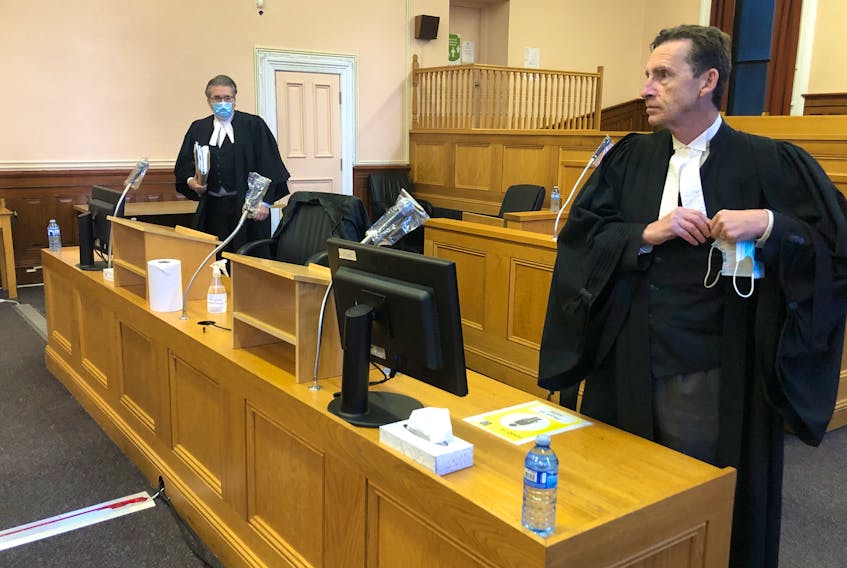ST. JOHN'S, N.L. — The case of a Memorial University student who attempted to throw himself and his friend off a cliff on Signal Hill in a murder-suicide is a unique one, his own lawyer told the court Thursday, calling it bizarre, peculiar and tragic.
“We don’t normally see an accused like this,” Mark Gruchy continued.
The complexity of the case was clear from the time the man’s trial began in the summer of 2019. Based on circumstantial evidence, it included matters of language barriers, cultural diversity and a complainant who told the court he didn’t believe the accused had wanted to murder him. Witness testimony came from the two men as well as from police, a high-angle rescue expert, a MUN professor and linguistic experts. At times, their evidence was completely opposed: two linguists, called to translate a series of text messages from Farsi to English, gave different interpretations of the conversation. The complainant and the accused each described things the other said didn’t happen.
In the end, Newfoundland and Labrador Supreme Court Justice Vikas Khaladkar determined the accused was guilty of attempted murder, saying the man’s own testimony to the contrary had been contrived and unbelievable.
On Thursday, Gruchy and prosecutor Mike Murray presented Khaladkar with their submissions on sentencing for the man. The accepted range of sentencing for an attempted murder conviction, they indicated, is very broad: previous cases in the country have seen judges order everything from a suspended sentence to 14 years behind bars.
There’s a publication ban protecting the names of the accused and the complainant, who had both come from Iran to study engineering at MUN. The accused was charged in April 2017 after he lured his friend to Signal Hill on the pretense of going skiing and, while standing on the edge of a cliff, grabbed the complainant and attempted to throw them both over the side. They landed on the slope about 15 feet down, caught in brush.
The victim testified he believed the accused had wanted him present as he took his own life. The accused told the court he hadn’t tried to kill anyone and had slipped on the ice after putting his hand on his friend’s shoulder, sending them both tumbling.
A text exchange between the accused and his brother in the days before the murder attempt revealed the accused as depressed and lonely. According to the linguist who translated the messages for police, the accused spoke of “thinking of killing” the complainant. Khaladkar accepted the interpretation of the defence’s linguist, who had said the verb choices in the messages suggested the accused was having thoughts or dreams about killing, but had no intention to do it.
“Something happened in his mind,” Gruchy told the judge Thursday. “Something remarkable and unusual happened when this event occurred, that, thank God, didn’t lead to any significant injury.”
The murder-suicide attempt was an irrational act caused by a mental disturbance, Gruchy said, telling the court the accused is highly intelligent, well-travelled and academically successful, having worked his entire life to excel in the engineering field, with no previous indication of anti-social behaviour and the support of his family.
“In this case, while the consequences would have been great (had he succeeded), he stopped immediately. It was one brief moment in time,” Gruchy said.
Gruchy suggested a jail term of two to three years for the accused, who is likely to be deported once he serves whatever sentence is imposed.
“I think there is room for mercy in this case,” he said.
Murray suggested a six-year prison sentence, pointing out the man would have been charged with first-degree murder had his victim died and he lived, given the amount of planning he had undertaken. He took steps over a period of days to plan the murder attempt, Murray said.
“There’s an element of planning and deliberation that other cases of attempted murder don’t have,” the prosecutor said, adding it was an extremely aggravating factor that would warrant a longer jail term.
The specifics of the man’s mental-health issues have not been established and are ambiguous, Murray told the court.
Khaladkar will return with his decision Dec. 10.
Tara Bradbury reports on the courts and the justice system in St. John's.









